Phone:
+91 93413 48782
Physical address:
Sri Chowdeshwari Layout Su.no 24 Nalenallasandra Village Jigani Hobli Anekal Taluk Jigani Bengaluru Karnataka 560105 Nearby Nandan Banaa Convention Hall

Phone:
+91 93413 48782
Physical address:
Sri Chowdeshwari Layout Su.no 24 Nalenallasandra Village Jigani Hobli Anekal Taluk Jigani Bengaluru Karnataka 560105 Nearby Nandan Banaa Convention Hall
At NorthIndianPanditInBangalore.com, we believe in perfection in every step of our spiritual services. From the moment you reach out to us until the completion of your ritual, we ensure that every detail is carefully planned and executed with utmost precision. Here’s how we embody perfection in all that we do:
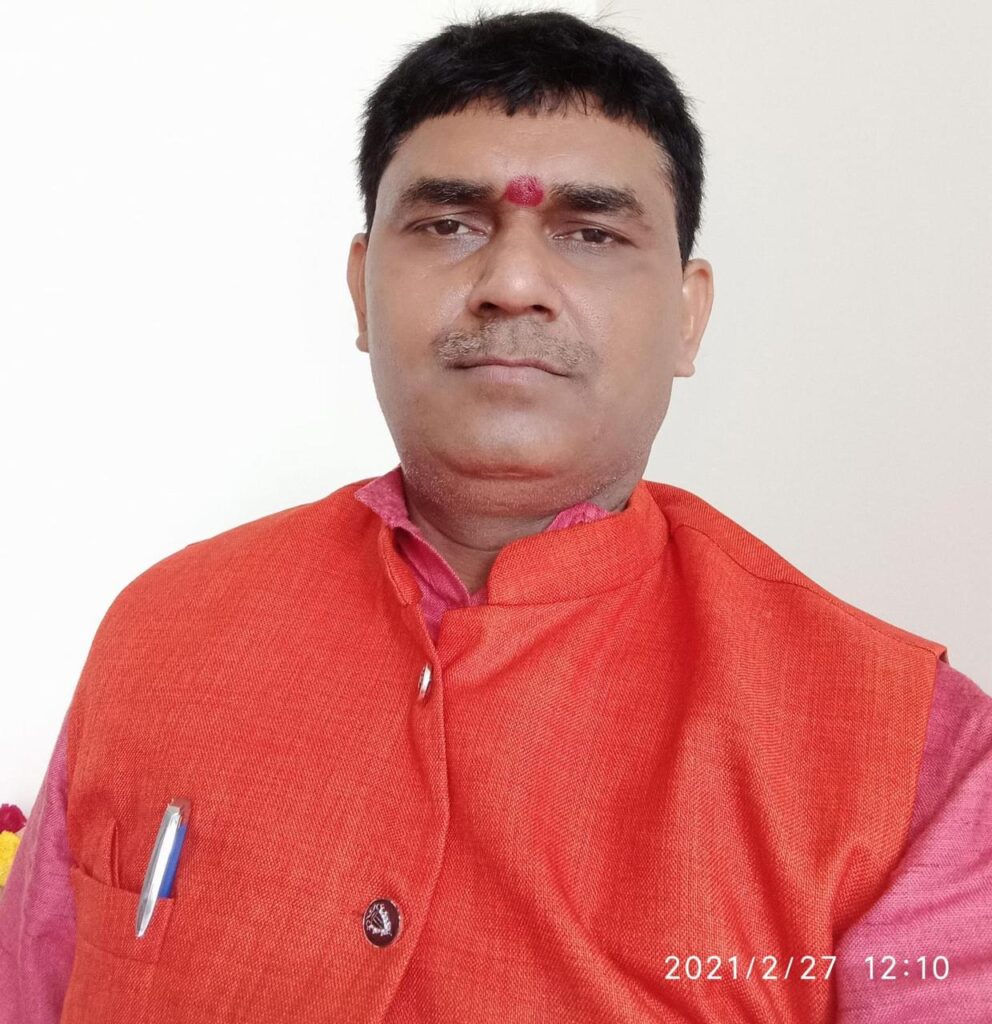
Pandit Avinash
our
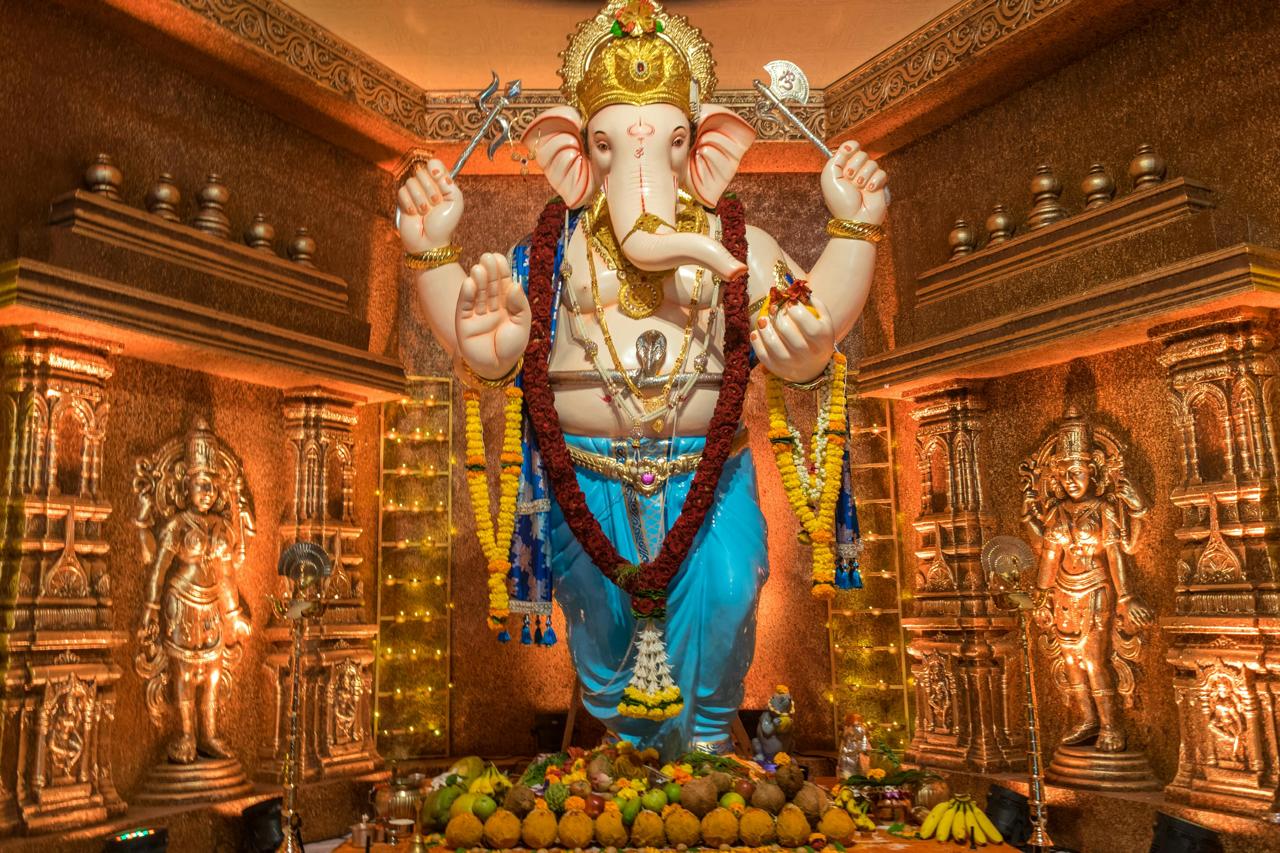
Ganesh Puja is a revered Hindu ritual dedicated to Lord Ganesha, the deity of wisdom, prosperity, and the remover of obstacles. This auspicious ceremony is performed at the beginning of any new venture, festival, or significant life event to invoke Ganesha’s blessings for success and harmony. The puja involves offering flowers, fruits, modaks (sweet dumplings), and durva grass to a deity idol or image of Ganesha, along with the chanting of sacred mantras and hymns such as the Ganapati Atharvashirsha. The ritual typically begins with Ganapati Sthapana (installation of the idol) and Sankalp (resolution), followed by the purification of the space and invoking Ganesha’s presence. Special emphasis is placed on offering heartfelt prayers to seek his guidance in overcoming challenges and achieving goals. Ganesh Puja is a spiritually enriching ceremony that fosters positivity, wisdom, and prosperity, making it an integral part of Hindu culture and traditions.
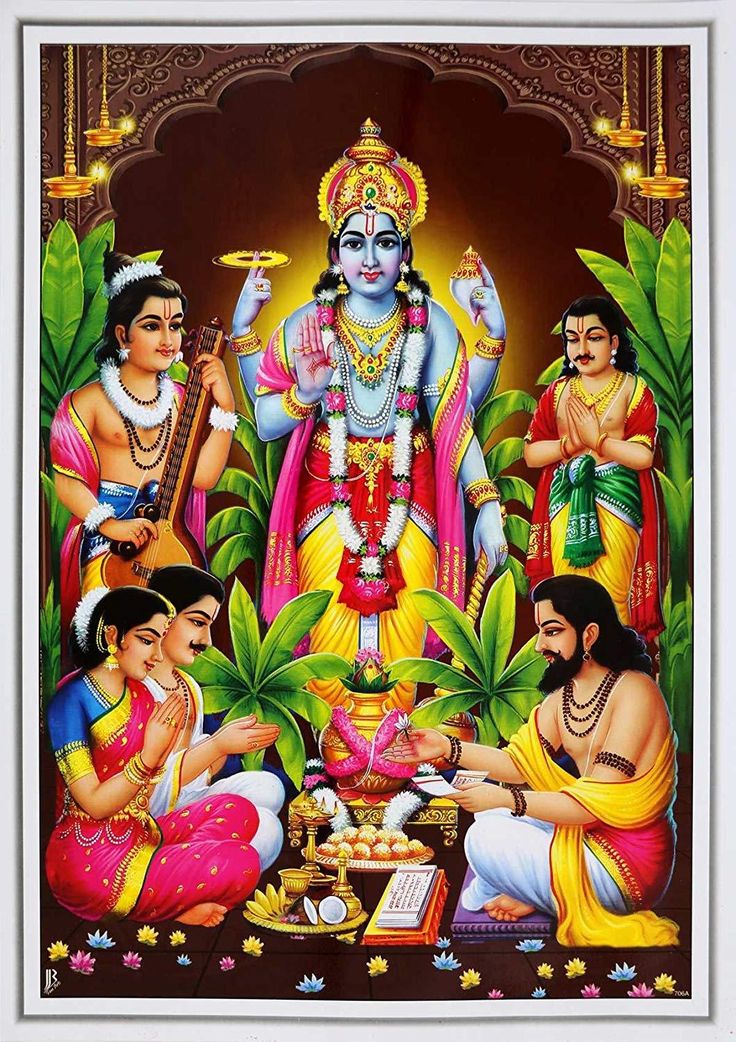
Satyanarayan Katha is a deeply revered Hindu ritual dedicated to Lord Vishnu, performed to express gratitude, seek divine blessings, and ensure peace, prosperity, and harmony in life. This sacred ceremony involves the worship of Lord Satyanarayan, an incarnation of Lord Vishnu, followed by the recitation of the Satyanarayan Katha, a narrative that highlights the importance of truth, devotion, and righteousness. The puja typically begins with a Ganesh Puja to remove obstacles, followed by Kalash Sthapana (installation of the holy pot symbolizing the divine presence), and offerings of fruits, sweets, and flowers. Devotees listen to the katha, which recounts inspiring stories of individuals whose lives transformed due to their unwavering devotion to Lord Satyanarayan. The ritual concludes with an aarti and the distribution of prasad, usually a sweet dish made of semolina, sugar, and ghee (sheera). Satyanarayan Puja is often performed on auspicious occasions, such as full moon days (Purnima), weddings, housewarming ceremonies, or to mark milestones and achievements, making it a cherished tradition for bringing good fortune and divine grace.
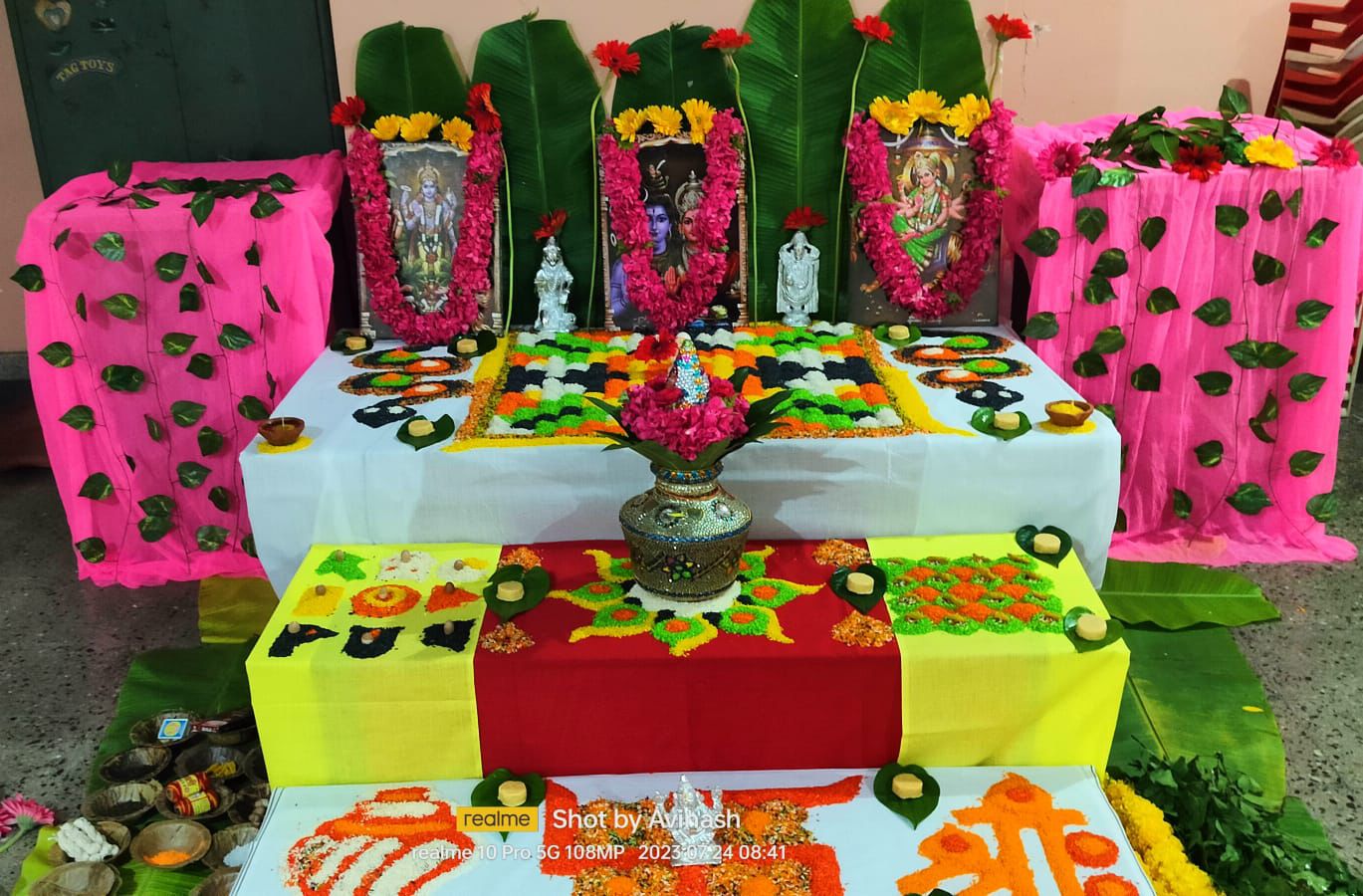
Griha Pravesh, or the Housewarming Ceremony, is a sacred Hindu ritual performed to mark the auspicious entry into a new home. It is believed that a home becomes complete and filled with positive energy only after invoking the blessings of the divine through this ceremony. The ritual typically involves worshipping Lord Ganesha, the remover of obstacles, and performing a havan (sacred fire ceremony) to purify the house and eliminate negative energies. Vedic chants, offerings, and the sprinkling of holy water sanctify the space, ensuring peace, prosperity, and harmony for the occupants. Griha Pravesh is conducted on an auspicious date and time, as determined by a qualified priest based on the homeowner’s horoscope, to attract blessings and good fortune. This ceremony is not only a spiritual practice but also a joyous occasion celebrated with family and friends to mark a new beginning in life.
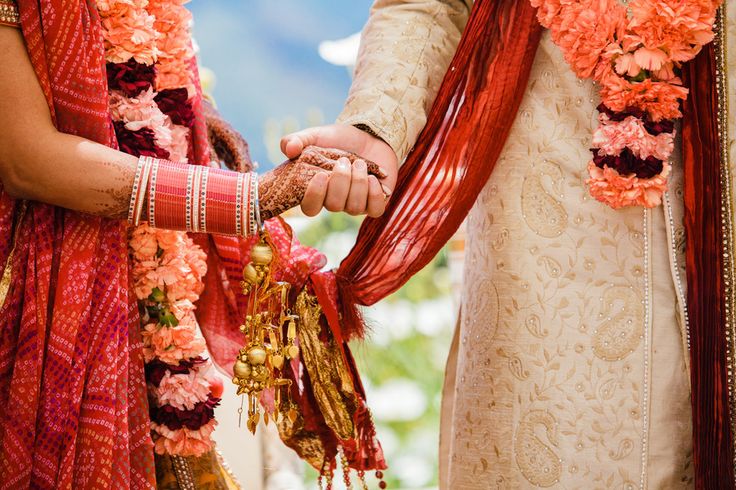
Vivah Sanskar, or the Hindu Wedding Ceremony, is a sacred and joyous union of two individuals, rooted in the Vedic tradition of samskaras, which are rites of passage in life. This elaborate ceremony symbolizes the coming together of two souls, their families, and their destinies in a bond of love, trust, and mutual respect. The ritual begins with pre-wedding ceremonies like engagement, mehndi (henna), and haldi (turmeric) to prepare and bless the couple. On the wedding day, the central rituals include Kanyadaan (giving away of the bride), Mangalsutra Dharanam (tying of the sacred thread), and Saptapadi (taking seven sacred vows around the holy fire). These vows emphasize values like companionship, commitment, and shared responsibilities. The sacred fire (Agni) serves as a divine witness to the vows, while mantras are chanted to invoke blessings for a prosperous and harmonious married life. Vivah Sanskar is not only a spiritual union but also a celebration of love and cultural heritage, bringing together family and friends to bless the newlyweds.

The Naamkaran Ceremony, or Naming Ceremony, is a sacred Hindu ritual that marks the formal naming of a newborn child. Traditionally performed on the 11th day after birth or on an auspicious date, this ceremony is considered one of the most significant milestones in a baby’s life. It is a way of bestowing a unique identity upon the child while seeking blessings from the deities for their health, happiness, and bright future. The ceremony begins with a puja to purify the environment and invoke divine blessings. The name, chosen based on the baby’s birth star (Nakshatra) and astrological calculations, is whispered into the child’s ear by the parents or elders. The name reflects cultural values, spiritual significance, and aspirations for the child. Naamkaran is a joyous occasion that brings family and friends together to celebrate the child’s arrival and future. It symbolizes love, hope, and blessings, fostering a sense of belonging and tradition. Our Pandit Ji ensures that the ceremony is conducted with proper Vedic rituals, making it a memorable and auspicious start for your little one’s journey in life.

Navagraha Shanti Puja is a powerful Vedic ritual performed to invoke the blessings of the nine celestial planets (Navagrahas) and mitigate the adverse effects of their unfavorable alignments in one’s horoscope. These planets—Surya (Sun), Chandra (Moon), Mangal (Mars), Budha (Mercury), Guru (Jupiter), Shukra (Venus), Shani (Saturn), Rahu, and Ketu—are believed to influence various aspects of human life, including health, career, relationships, and spiritual growth. During the puja, a qualified priest chants sacred mantras, performs homam (fire offerings), and offers specific items unique to each planet, creating a harmonious energy that balances planetary influences. This ritual is particularly beneficial for overcoming doshas, such as Shani dosha or Rahu-Ketu dosha, and for improving overall well-being, success, and inner peace. Navagraha Shanti Puja is often performed during critical life events, planetary transits, or to address specific astrological challenges, helping devotees align with positive cosmic energies.
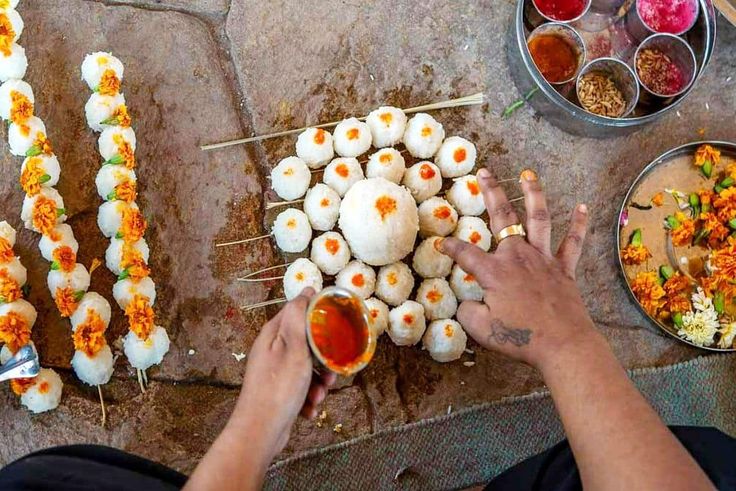
The Shraddha and Pitru Puja are sacred Hindu rituals performed to honor and seek the blessings of one’s departed ancestors, or Pitru Devtas. These ceremonies express gratitude and respect toward forefathers and are believed to help the souls of the departed attain peace and liberation. By performing these rituals, families also seek to eliminate ancestral karmic debts (Pitru Dosha) and ensure harmony and prosperity in their lives. The Shraddha ceremony involves offering Pind Daan (ritualistic food offerings) and prayers, accompanied by chanting mantras to invoke the blessings of ancestors. The Pitru Puja is performed to seek forgiveness and fulfill any unfulfilled desires of the departed souls, thereby bringing peace to their spirits. These rituals are typically conducted during the Pitrupaksha period or on specific occasions such as death anniversaries. By performing Shraddha and Pitru Puja with devotion and proper Vedic procedures, individuals can receive the blessings of their ancestors, clear obstacles, and ensure overall well-being for themselves and their family. Our Pandit Ji ensures that these rituals are performed with precision and dedication, creating a meaningful and spiritually fulfilling experience.
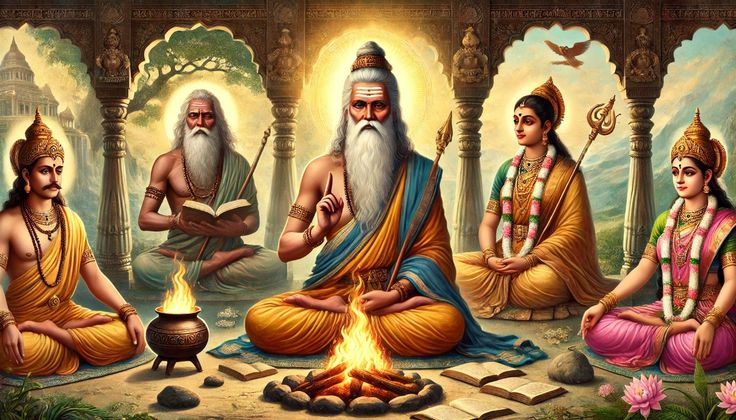
The Havan or Yajna is a sacred fire ritual in Hinduism performed to purify the surroundings and invoke divine blessings. It involves offering oblations such as ghee, grains, and herbs into the fire while chanting Vedic mantras, symbolizing the surrender of material attachments and desires to attain spiritual growth. The fire, considered a representation of divine energy, acts as a medium to connect with deities and cosmic forces. Havan is performed for various purposes, including purification of the environment, removal of negative energies, fulfillment of desires, and overall well-being. Specific types of havans, such as Ganesh Havan, Navagraha Havan, or Mritunjay Havan, are conducted based on the occasion and the individual’s spiritual or material goals. The ritual is also believed to balance the five elements of nature (earth, water, fire, air, and space) and create a harmonious atmosphere. It is an integral part of ceremonies such as housewarmings, weddings, and festivals, as well as for personal peace and prosperity. Our Pandit Ji performs havans with utmost devotion, following traditional Vedic procedures to ensure that the divine energy of the ritual benefits you and your loved ones.
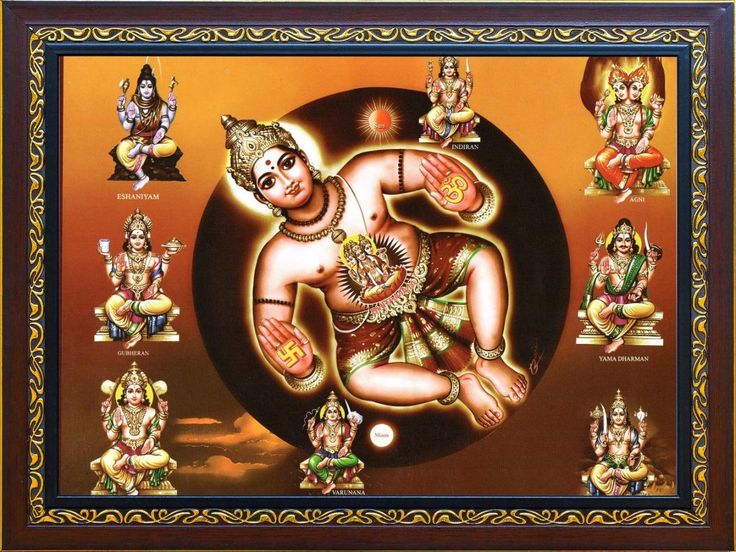
The Vastu Shanti Puja is a sacred ritual performed to harmonize the energies of a living or working space and remove any negative influences as per Vastu Shastra, the ancient Indian science of architecture and space. This puja is ideal for new homes, renovated spaces, or properties where peace and prosperity are sought. It purifies the environment, balances the five elements (earth, water, fire, air, and space), and aligns the space with cosmic forces. The ritual involves invoking divine blessings through prayers, offerings, and chanting of Vedic mantras. Key elements of the puja include Ganesha Puja to remove obstacles, Navagraha Puja to pacify planetary influences, and a Havan to energize the space with positive vibrations. By addressing structural or energetic imbalances, the Vastu Shanti Puja fosters a harmonious and auspicious atmosphere, bringing peace, prosperity, and happiness to all who dwell or work there. Our experienced Pandit Ji ensures the ceremony is performed with utmost devotion and adherence to Vedic traditions.

The Mritunjay Jaap, also known as the Maha Mritunjay Mantra Chanting, is a highly revered and powerful ritual dedicated to Lord Shiva, the God of transformation and healing. The mantra, “Om Tryambakam Yajamahe Sugandhim Pushtivardhanam, Urvarukamiva Bandhanan Mrityor Mukshiya Maamritat,” is chanted to invoke divine blessings for health, longevity, and protection from untimely death. This sacred Jaap is performed to seek relief from physical, mental, or emotional ailments and to overcome life’s adversities. It is believed to provide spiritual strength, dispel fears, and bring peace and prosperity. The vibrations generated through the chanting create a protective shield around the individual, warding off negative energies and fostering positive transformation. Our experienced Pandit Ji performs the Mritunjay Jaap with devotion and precision, ensuring that its spiritual benefits are maximized. Whether for personal healing, family well-being, or overcoming challenging circumstances, this powerful ritual offers solace and strength to devotees seeking divine intervention.
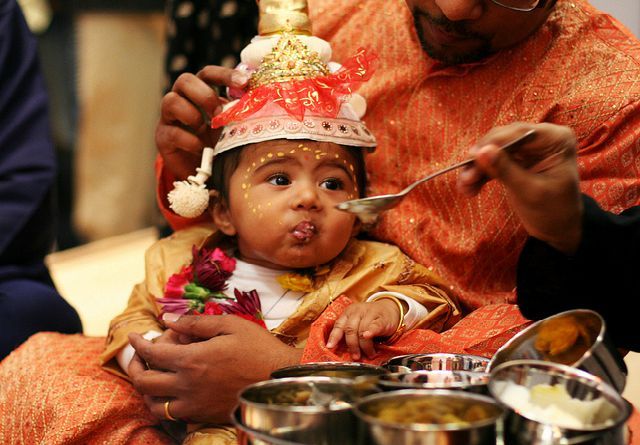
The Annaprashan Sanskar, also known as the First Feeding Ceremony, is a sacred Hindu ritual that marks the introduction of solid food into a baby’s diet. Traditionally performed when the child is between 6 to 8 months old, this ceremony is a significant milestone that symbolizes the baby’s transition from milk to solid nourishment.During the Annaprashan, a special puja is conducted to invoke the blessings of deities. The baby is fed a small amount of kheer (sweet rice pudding), which is considered auspicious and easy to digest. The feeding is usually done by the parents or grandparents as a gesture of love and care. The ritual may also include a fun tradition where the baby is offered various items to choose from, symbolizing their future interests or destiny.

The Sundarkand Path, a chapter from the epic Ramayana, is a powerful and devotional recitation that narrates the heroic deeds of Lord Hanuman. This sacred text describes Lord Hanuman’s journey to Lanka, his unwavering devotion to Lord Rama, and his fearless efforts to rescue Sita Mata. The Sundarkand Path is often performed during difficult times to seek strength and divine intervention. It is also considered auspicious for new beginnings, peace, and prosperity in households. Our experienced Pandit Ji performs the path with devotion and proper rituals, creating a spiritually uplifting experience for you and your family
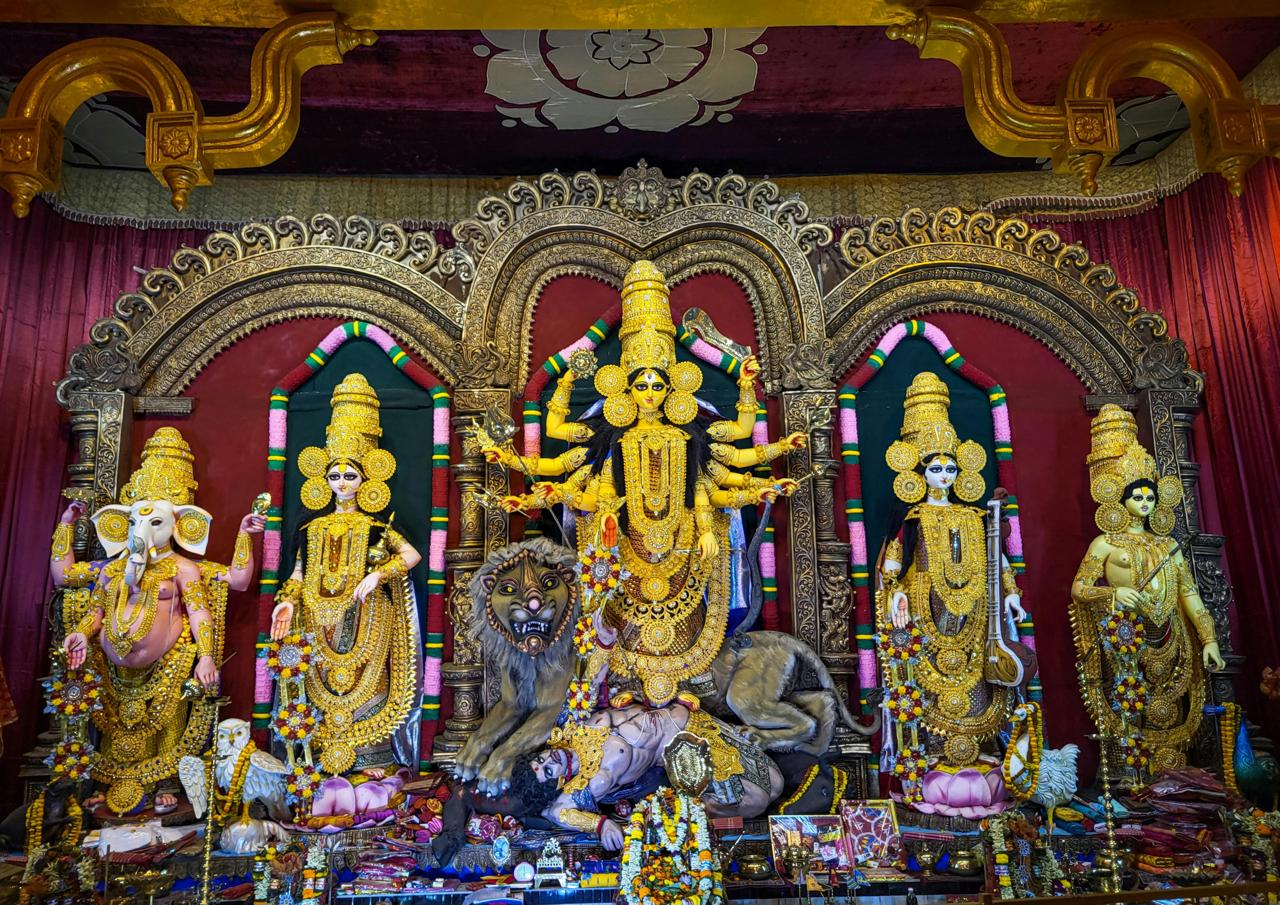
Durga Puja is one of the most revered Hindu rituals dedicated to Goddess Durga, the divine embodiment of strength, protection, and victory over evil. This puja celebrates the goddess as the destroyer of negative forces and the protector of righteousness. It is performed to seek her blessings for prosperity, courage, and spiritual strength. Durga Puja holds special significance during the Navratri period, a nine-day festival celebrating the nine forms of Goddess Durga. However, it can also be performed on other auspicious occasions to overcome challenges and invite positive energy into life.
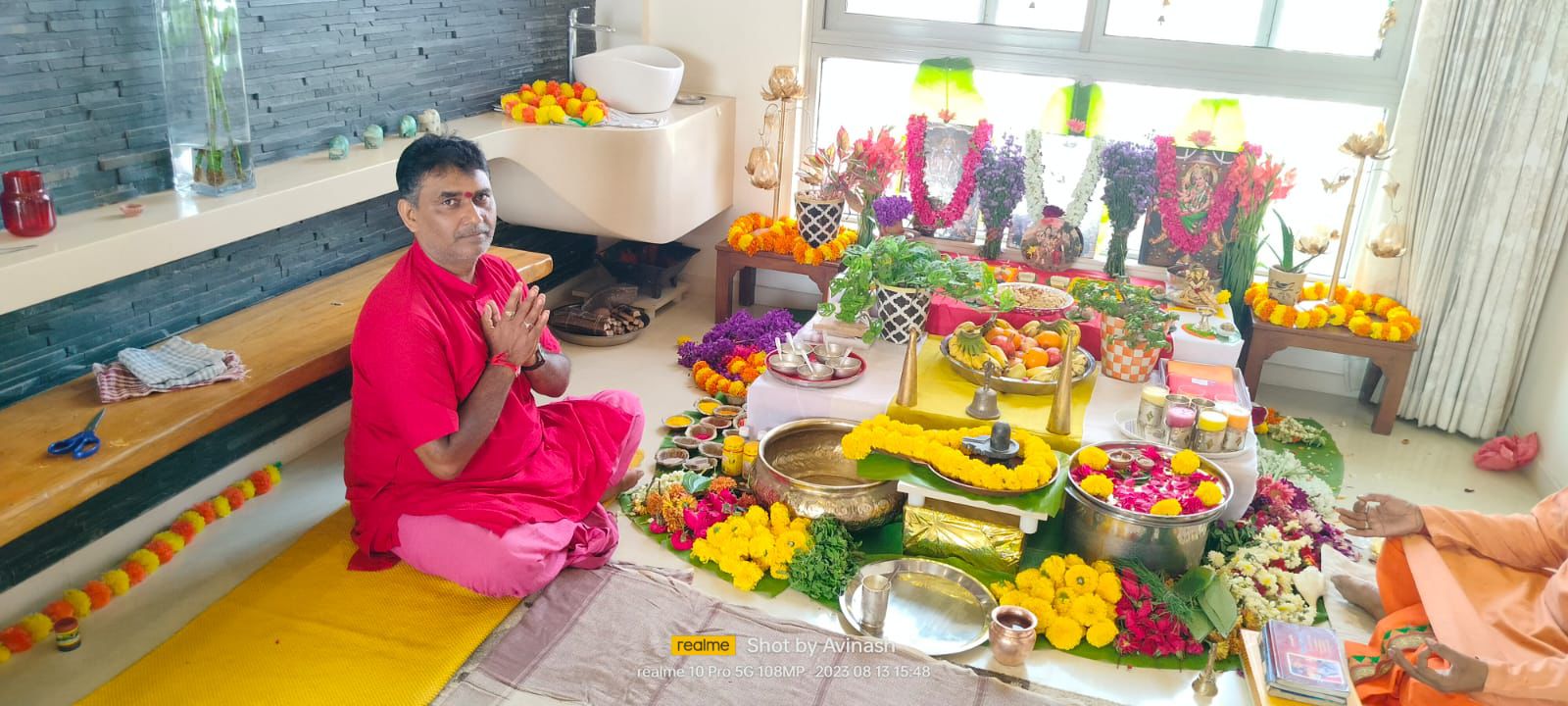
Rudra Abhishek is a highly revered and auspicious ritual performed to honor Lord Shiva, the ultimate deity of transformation, destruction, and benevolence. The ritual involves bathing the Shiva Lingam with sacred substances while chanting powerful Vedic mantras, particularly the Rudra Sukta from the Yajurveda. It is considered one of the most potent forms of worship, invoking Lord Shiva’s blessings for peace, prosperity, and protection from negativity.
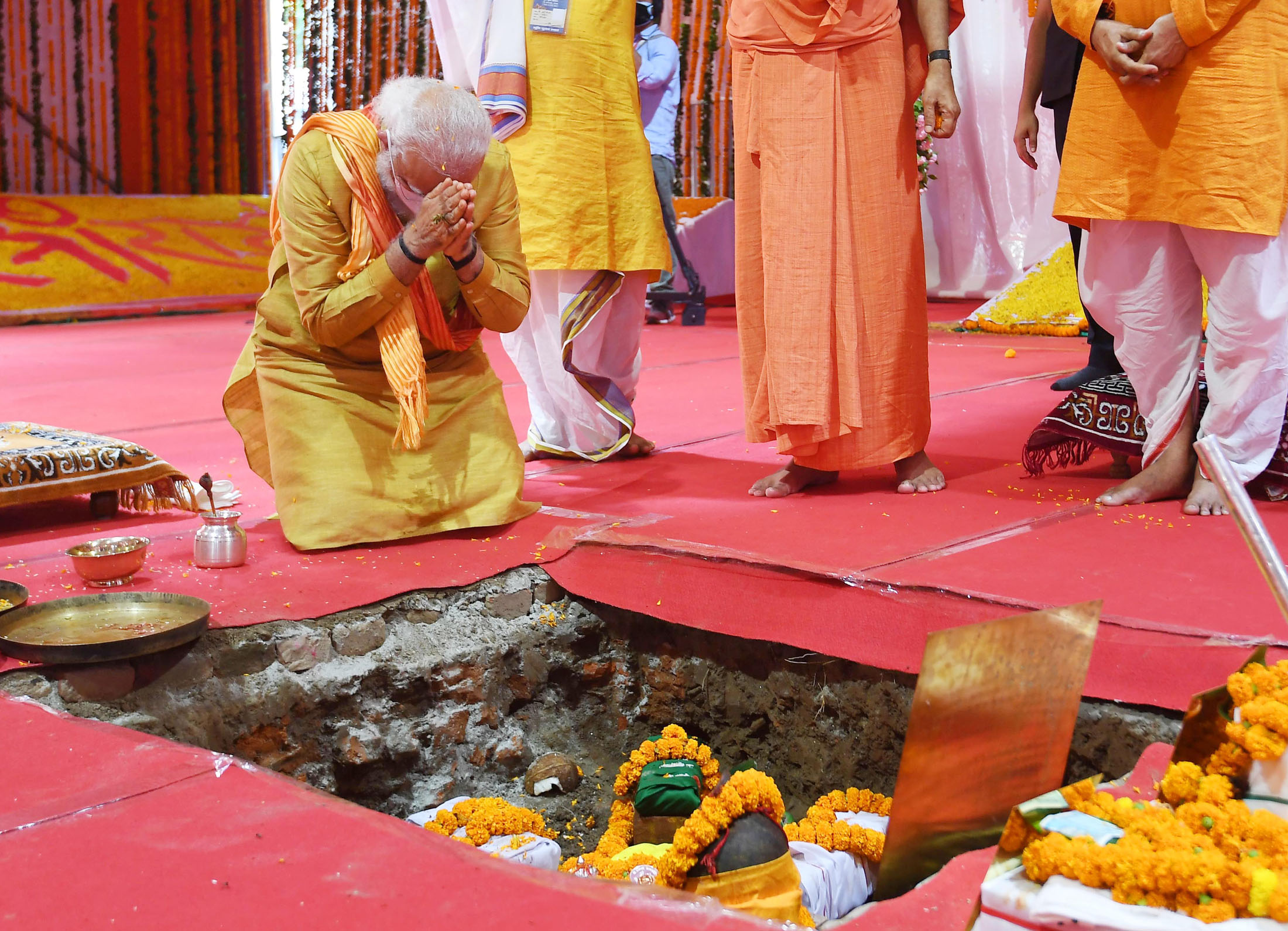
Bhoomi Poojan is a sacred Vedic ritual performed to honor Mother Earth (Bhoomi Devi) before commencing any construction or agricultural activity, such as building a house, office, or laying a foundation stone. This pooja seeks permission from the Earth and her deities, asking for their blessings, forgiveness, and protection during the project. It is an expression of gratitude to Bhoomi Devi for providing us with resources and space to build our dreams while ensuring the project proceeds smoothly without obstacles or negative influences.

The Pre-Wedding Haldi Poojan is a vibrant and sacred ritual performed before the wedding to invoke blessings from the divine for the couple's happiness, health, and prosperity. It is an integral part of Hindu marriage traditions, symbolizing purity, protection, and auspicious beginnings. The ritual includes the application of haldi (turmeric) paste, a holy substance in Hindu culture, to the bride and groom. This ceremony is a beautiful blend of spiritual devotion and joyous celebration, marking the transition of the couple into a new phase of life with the blessings of family, friends, and the divine.
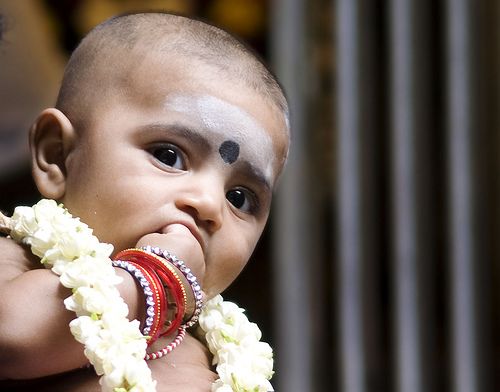
Mundan Sanskar, or the first haircut ceremony, is an important Hindu ritual performed for young children, usually between the ages of 1 and 3. This sacred rite is believed to cleanse the child of impurities, remove the past karmas from previous births, and promote spiritual and physical growth. The ritual is often carried out in a temple, at home, or at a sacred pilgrimage site, accompanied by traditional prayers and blessings.
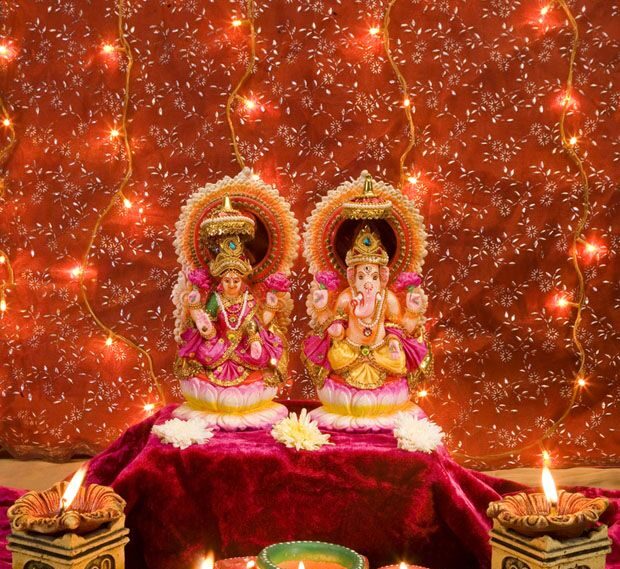
Diwali, the festival of lights, is one of the most celebrated Hindu festivals, symbolizing the triumph of light over darkness and good over evil. A significant part of the Diwali celebration is the Lakshmi Poojan, dedicated to Goddess Lakshmi, the goddess of wealth, prosperity, and fortune. This sacred ritual is performed to welcome her divine blessings into our homes and lives. The puja is a heartfelt expression of gratitude and devotion, seeking harmony, abundance, and success while dispelling negativity and inviting positive energies.
At North Indian Pandit in Bangalore, we are committed to delivering authentic and spiritual services that are deeply rooted in Hindu traditions.
To book a service or learn more about how we can assist you with your spiritual needs, please reach out to us via the contact form or call us directly at +91 93413 48782 .